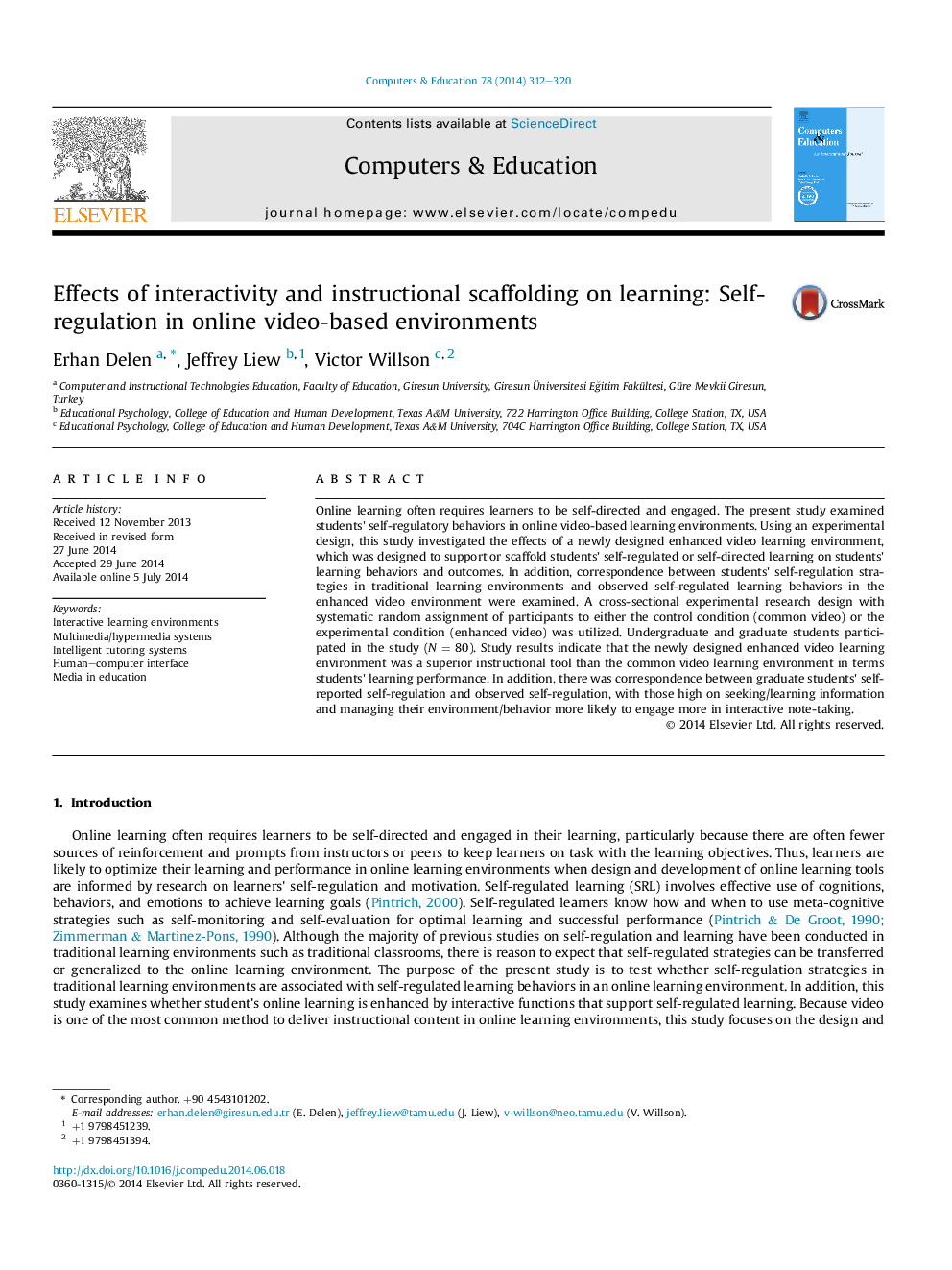| Article ID | Journal | Published Year | Pages | File Type |
|---|---|---|---|---|
| 6835174 | Computers & Education | 2014 | 9 Pages |
Abstract
Online learning often requires learners to be self-directed and engaged. The present study examined students' self-regulatory behaviors in online video-based learning environments. Using an experimental design, this study investigated the effects of a newly designed enhanced video learning environment, which was designed to support or scaffold students' self-regulated or self-directed learning on students' learning behaviors and outcomes. In addition, correspondence between students' self-regulation strategies in traditional learning environments and observed self-regulated learning behaviors in the enhanced video environment were examined. A cross-sectional experimental research design with systematic random assignment of participants to either the control condition (common video) or the experimental condition (enhanced video) was utilized. Undergraduate and graduate students participated in the study (NÂ =Â 80). Study results indicate that the newly designed enhanced video learning environment was a superior instructional tool than the common video learning environment in terms students' learning performance. In addition, there was correspondence between graduate students' self-reported self-regulation and observed self-regulation, with those high on seeking/learning information and managing their environment/behavior more likely to engage more in interactive note-taking.
Keywords
Related Topics
Social Sciences and Humanities
Social Sciences
Education
Authors
Erhan Delen, Jeffrey Liew, Victor Willson,
